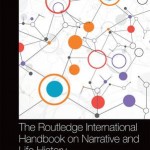
Professors Jens Holscher and Matthias Klaes (University of Buckingham) submitted the abstract below for presentation at the conference of the Association of Heterodox Economics. They want to contribute to the debate of Anne O. Krueger’s review in the Journal of Economic Literature:
Another instance of ignorance towards basic understandings of good scientific practice, is the economists tendency to defend one’s turf against alternative ideas and conceptions instead of trying to constructively engage with what is perceived as “input from outside”. While this tendency is well-known to heterodox economists, a recent instance refers to the broader issue of ethics in economics and relates to a review of the The Oxford Economic Handbook published by the eminent Journal of Economic Literature (JEL)<https://www.aeaweb.org/issues/469>in its book review section. While reviews in the JEL are known to be sharp, this one is especially so, implicitly chastizing the authors as “idealists [that] advocate entirely impractical or unattainable actions” (p. 216). While such a criticism would surely be legitimate in principle, the problem here is that this statement amounts to stark misrepresentation of the books actual content and thereby violates a basic standard of academic conversation, namely not to misrepresent the object of one’s criticism. In this context, I would urge you to have a look at the JEL’s review<http://www.aeaweb.org/issues/469> and the related reply by the Handbooks’s editors<https://econjwatch.org/articles/professional-ethics-101-a-reply-to-anne-krueger-s-review-of-the-oxford-handbook-of-professional-economic-ethics> published in the recent issue of Econ Journal Watch<http://www.heterodoxnews.com/n/htn227.html#art-17592186075082>. Doing so really sharpens the intuition about the degree and intensity of prevailing groupthink in economics, the means and attitudes used to defend this way of thought as well as the biases emerging from such an attitude.
The Krueger Review: Why the Dismal Science Deserves Better Than Dismal Ethics
Jens Hoelscher, University of Bournemouth
Matthias Klaes, University of Buckingham
Abstract
Economists have long held that their discipline is ‘value free’ in the sense that economics is a scientific enterprise that allows the separation of normative considerations from the presentation the findings of economic analysis. David Ricardo, in his Notes on Malthus for example, puts it this way:1 “[I]t is not the province of the Political Economist to advise: – he is to tell you how you may become rich, but he is not to advise you to prefer riches to indolence, or indolence to riches” (Ricardo, 1820[1951], p. 338). In the neoclassical tradition, we have come to know this as ‘positive’ economics, which received perhaps its most influential formulation at the hands of Milton Friedman’s (1953) ‘Methodology of positive economics.’ What is interesting though regarding moral questions relating to economic advice in Friedman’s essay is the explicit juxtaposition of economics as an objective science with the incentive structure of economic debate: “Laymen and experts alike are inevitably tempted to shape positive conclusions to fit strongly held normative preconceptions and to reject positive conclusions if their normative implications – or what are said to be their normative implications – are unpalatable” (ibid.)
Friedman does not explicitly elaborate on these latter points, but his implicit position regarding expert advice is clear from the context: experts should be free from conflicts of interest, and whether somebody is an expert or not can only be judged through the refutable nature of the advice given. Poor expertise will be based on poor intellectual tools of analysis and reveal itself through lack of predictive success, while biased advice will reveal itself in its relation to outside influence. There are thus in Friedman’s essay, implicitly at least, the contours of a call to experts for them to adhere to a kind of virtuous honesty implicit in the enterprise of objective science itself.
We will examine in our paper the bread-and-butter workings of this implicit principle and its strengths and limitations as a foundation for professional economic ethics in the arena of economic expert advice. We will do this two-fold, first by looking at the economist as an expert on what happens in economics, and then at the role of the economist as an expert on what happens in the economy. Krueger’s recent JEL review of the Oxford Handbook of Professional Economic Ethics will serve us as a case study for the former. She reads the Handbook as a ‘series of attacks on mainstream economics and the practice of economics’. We will look at how she could have arrived at such a reading, and what this tells us about Krueger as an expert on what happens in economics. Regarding the role of the economist as an expert on what happens in the economy, we will revisit some deeply troubling implications of what happens if, when looking at the objective function of the cost-benefit analysis of institutional change, we discover human life is at stake in a way that it has been in the context of Eastern European transition.
 Chapter on Ethics in Film by Kip Jones published by Routledge
Chapter on Ethics in Film by Kip Jones published by Routledge










 Expand Your Impact: Collaboration and Networking Workshops for Researchers
Expand Your Impact: Collaboration and Networking Workshops for Researchers Visiting Prof. Sujan Marahatta presenting at BU
Visiting Prof. Sujan Marahatta presenting at BU 3C Event: Research Culture, Community & Can you Guess Who? Thursday 26 March 1-2pm
3C Event: Research Culture, Community & Can you Guess Who? Thursday 26 March 1-2pm UKCGE Recognised Research Supervision Programme: Deadline Approaching
UKCGE Recognised Research Supervision Programme: Deadline Approaching ECR Funding Open Call: Research Culture & Community Grant – Apply now
ECR Funding Open Call: Research Culture & Community Grant – Apply now ECR Funding Open Call: Research Culture & Community Grant – Application Deadline Friday 12 December
ECR Funding Open Call: Research Culture & Community Grant – Application Deadline Friday 12 December MSCA Postdoctoral Fellowships 2025 Call
MSCA Postdoctoral Fellowships 2025 Call ERC Advanced Grant 2025 Webinar
ERC Advanced Grant 2025 Webinar Update on UKRO services
Update on UKRO services European research project exploring use of ‘virtual twins’ to better manage metabolic associated fatty liver disease
European research project exploring use of ‘virtual twins’ to better manage metabolic associated fatty liver disease